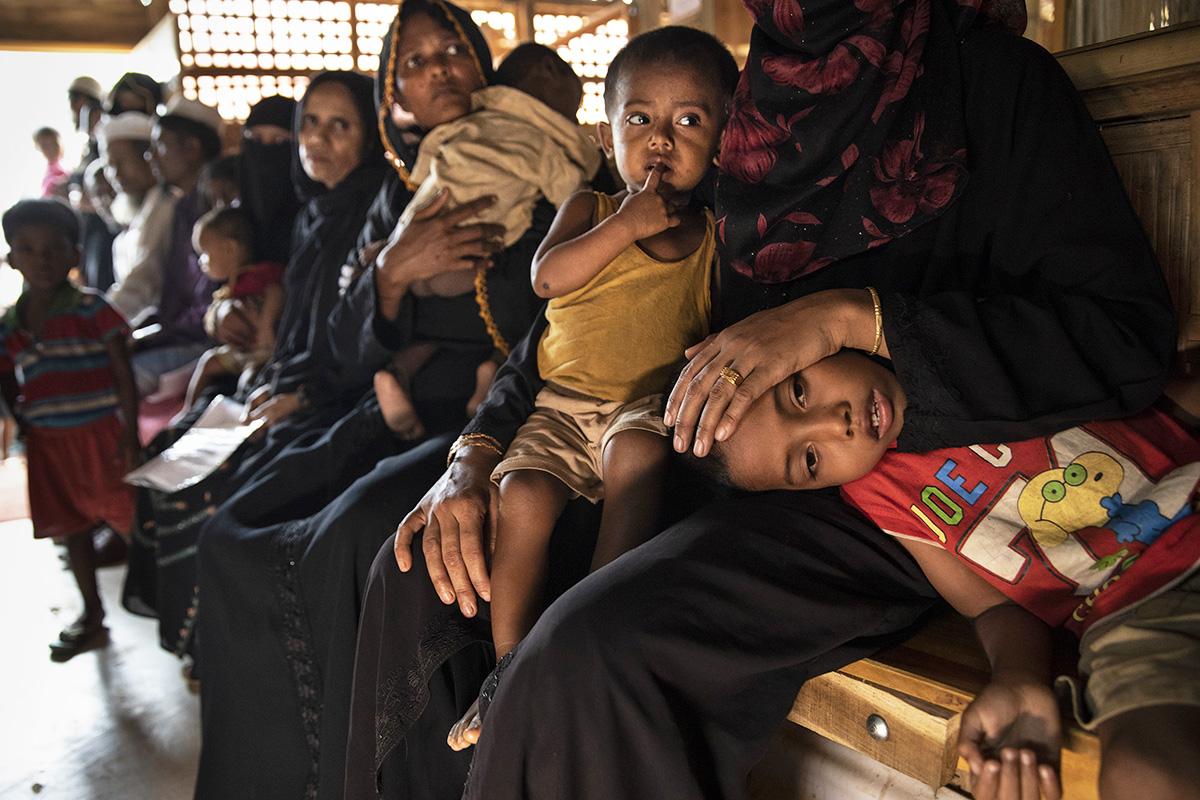Bangladesh and Myanmar agree to Rohingya repatriation by mid-November
'We are looking forward to start the repatriation by mid-November,' says Bangladesh's Foreign Secretary Shahidul Haque

Your support helps us to tell the story
From reproductive rights to climate change to Big Tech, The Independent is on the ground when the story is developing. Whether it's investigating the financials of Elon Musk's pro-Trump PAC or producing our latest documentary, 'The A Word', which shines a light on the American women fighting for reproductive rights, we know how important it is to parse out the facts from the messaging.
At such a critical moment in US history, we need reporters on the ground. Your donation allows us to keep sending journalists to speak to both sides of the story.
The Independent is trusted by Americans across the entire political spectrum. And unlike many other quality news outlets, we choose not to lock Americans out of our reporting and analysis with paywalls. We believe quality journalism should be available to everyone, paid for by those who can afford it.
Your support makes all the difference.Bangladesh and Myanmar agreed to begin by November the repatriation of hundreds of thousands of Rohingya Muslims
More than 700,000 Rohingya refugees crossed from the west of mostly Buddhist Myanmar into Bangladesh from August last year after Rohingya insurgent attacks on the Myanmar security forces triggered a sweeping military response.
"We are looking forward to start the repatriation by mid-November," Bangladesh's Foreign Secretary Shahidul Haque told reporters in Dhaka after a meeting with a Myanmar delegation led by senior foreign ministry official Myint Thu.
Mr Myint Thu hailed what he called a "very concrete result on the commencement of the repatriation".
He said: "We have put in place a number of measures to make sure that the returnees will have a secure environment for their return."
However, the United Nations refugee agency said conditions in Rakhine state were "not yet conducive for returns", stressing that they must be voluntary. Necessary safeguards are "absent" in the region, where it has had only limited access amid continuing restrictions for media and other independent observers, it said.
"It is critical that returns are not rushed or premature," said UNHCR spokesman Andrej Mahecic. "We would advise against imposing any timetable or target figures for repatriation."
Leaders of the largely stateless Rohingya community have said they will not return without various demands being met, including the right to Myanmar citizenship.
"We have some demands but the government of Myanmar didn't do anything to meet them. How can we go back?" said Mohib Ullah, a Rohingya leader now living in southeast Bangladesh. "What about our citizenships, our rights and our demand to go back to our land ... our own houses?"
The two countries first reached a deal last November to begin repatriation within two months, but it has not started.
Rohingya are still crossing the border into Bangladesh, with nearly 14,000 arriving this year, according to UN officials.
UN rights investigators issued a report in August accusing which accused Myanmar's military of acting with "genocidal intent". It also called for the country commander-in-chief, Min Aung Hlaing and five generals to be prosecuted under international law.
Myanmar has denied accusations of ethnic cleansing and says its actions were part of a fight against terrorism.
It has also blamed Bangladesh for the delay and says it is ready to take back the refugees and has built transit centres to house them initially on their return.
Given the delays, Bangladesh has been preparing new homes on a remote island called Bhasan Char, which rights groups have said could be subject to flooding.
Reuters
Join our commenting forum
Join thought-provoking conversations, follow other Independent readers and see their replies
Comments